The Ho Chi Minh City Department of Construction has just issued a document requesting real estate businesses to strictly comply with legal regulations on public disclosure of project information, transactions and ownership rights. According to the spirit of the 2023 Law on Real Estate Business and Decree 94, 96/2024/ND-CP, businesses must publicize project information before putting into business, report transaction status in writing and electronic files, and be responsible for the accuracy of the data.
Prohibition of circumvention, authorization to brokers
Notably, the document strictly prohibits investors from authorizing other organizations or individuals to sign contracts for deposits, sales, transfers, lease-purchase of housing or land use rights in projects. Investors are only allowed to sell or lease-purchase future housing after having notified the state management agency in writing about meeting the transaction conditions.
Before the Department of Construction issued this document, many projects in Ho Chi Minh City were opened for sale under authorization. Many F2 and F3 brokerage floors received deposits from customers, while the projects had not been granted construction permits and did not meet legal requirements. Many customers from the northern provinces flew to Ho Chi Minh City to "pay goodwill deposits" but in reality had not signed a contract with the investor.
At a recent project opening, Ms. Loan (residing in Tan Hung ward, Ho Chi Minh City) said that she had made a "goodwill deposit" of VND50 million through the floor, then paid another 10% of the apartment's value, but only through a brokerage company and not working with the investor. "I thought it was a normal process, but when I asked later, I found out that I was not qualified to open for sale," she shared.
A director of a real estate company in Ho Chi Minh City admitted that for a long time, many investors have been trying to "circumvent the law" by authorizing brokerage floors to receive deposits from customers. This "shortcut" through marketing and communication makes customers only know about the trading floor without direct contact with the investor.
According to economic expert - Dr. Tran Nguyen Dan, the situation of investors "circumventing the law" through brokerage floors to raise capital has existed for a long time. "Many projects mobilize up to 90% - 95% of the apartment value before signing the sales contract. Management agencies clearly see but do not handle, causing the market to distort, creating virtual demand and FOMO (fear of missing out) psychology for buyers" - Mr. Dan analyzed.
According to him, this approach not only inflates real estate prices but also puts the risk on the buyer's side. Because if there is an incident, they will only be refunded their deposit or bank interest, while the investor still appropriates the capital. "The expensive lessons from some major incidents in the market in the past still have warning value," he emphasized.
At the same time, the Government 's draft Resolution on the mechanism for controlling real estate prices has also attracted public attention. In this draft, the management agency proposes that real estate transactions must be conducted through a state-managed trading floor, while tightening credit for borrowers buying second and third apartments. In addition, the draft also encourages the development of affordable commercial housing, expanding the supply of mid-range apartments to meet real housing needs.
Mr. Vo Hong Thang, Deputy General Director in charge of consulting at DKRA Consulting, said that according to a survey by DKRA Group, up to 70% of customers who bought new projects in the past were for investment, of which 50%-60% already owned a second apartment and more than 20% owned a third apartment or more. However, whether tightening credit to help reduce speculative demand, cool prices and bring the market back to its real value or not, also needs to be considered.
He also commented that if this policy is applied, bank credit for the real estate sector will increase slowly, market liquidity may decrease by about 30%. "Speculators will have to consider carefully, while people with real needs will have the opportunity to access more suitable products" - Mr. Thang commented.
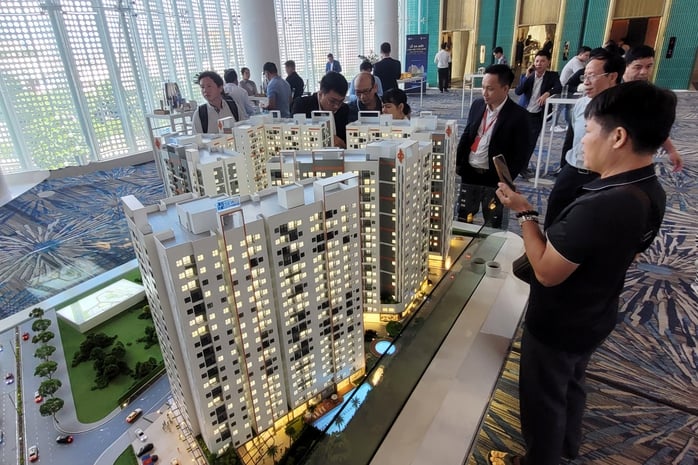
Customers learn about a real estate project in Ho Chi Minh City. Photo: TAN THANH
Implement synchronous, long-term solutions
Mr. Vo Hong Thang supports the real estate tax policy to limit speculation, but he hopes that the Government and ministries and branches should have a step-by-step implementation plan, with a roadmap, careful calculation, and avoid sudden application. "If the tax is tightened too quickly, the market may react strongly, affecting liquidity and the overall growth of the economy, because real estate is an industry with great influence on other fields," Mr. Thang commented.
According to Dr. Pham Viet Thuan, Director of the Ho Chi Minh City Institute of Natural Resources and Environment Economics, real estate transaction tax is an effective tool to limit speculation.
He proposed applying tax according to the time of holding the property: if owned for less than 12 months, the tax will be 20% on the selling price, from 12 to 36 months is 10%, 36 to 60 months is 5% and over 60 months keep the current rate of 2%. "This tax rate should also be applied to cases of authorized purchase and sale to avoid legal loopholes," said Mr. Thuan.
He believes that this tax method is simpler and easier to apply than forcing transactions through online public exchanges, which is not suitable in the current context. "Tax based on ownership time helps limit surfing but does not distort the market. Those who invest short-term will have to pay high taxes, while those who hold long-term will be given incentives, which is fair and reasonable" - Mr. Thuan emphasized.
In addition, Mr. Thuan also proposed to build a land price list that tends to decrease over time, considering land as a means of production, not a commodity for speculation. When land prices are properly controlled, combined with flexible transaction taxes, the market will return to its real value, creating opportunities for people to buy houses, while contributing to stabilizing social security.
According to Dr. Tran Nguyen Dan, dealing with speculation must be done synchronously and long-term, and cannot be resolved overnight. He believes that in addition to taxation, it is necessary to combine credit and administrative tools. "Credit scores must be established for borrowers and banks must be required to participate in control. Borrowers buying a second home should pay higher interest rates and lower loan ratios, for example, only 50% for the second home and 30% for the third home," he suggested.
Dr. Dan also emphasized that if a customer asks a relative to use their name to avoid taxes, the person using their name will also have to bear the consequences such as being restricted from borrowing or being taxed on the next purchase. "There needs to be coordination between management agencies, banks and the tax system to ensure fairness and avoid legal loopholes," he added.
According to him, this is a problem that requires a 5-10 year roadmap, with coordination between ministries, branches and local authorities to stabilize the market. "Real estate prices can only decrease and stabilize when we synchronize from tax and credit policies to project legality. When people with real needs can easily access housing, speculation will naturally decrease" - Mr. Dan commented.
Price increases are not only due to speculation.
Dr. Tran Nguyen Dan also frankly pointed out that the reason for the escalation of real estate prices is not only speculation but also prolonged legal procedures. "Many projects take 7-8 years to complete procedures, causing capital costs to increase. When costs increase, businesses are forced to increase selling prices to compensate, and the final buyers suffer. Therefore, the State needs to clearly define the responsibilities of each stage and each agency in the project approval process to shorten the time and reduce costs," said Mr. Dan.
Da Nang traces land "price inflation" and speculation
On October 13, the Office of the People's Committee of Da Nang City announced that the Chairman of the People's Committee of the city has just signed and issued an official dispatch on inspecting, reviewing, rectifying and handling acts of price manipulation and real estate speculation; and strengthening the management and use of land in the area.
Accordingly, the Chairman of the People's Committee of Da Nang City assigned the Department of Agriculture and Environment to preside over and coordinate with the Department of Construction, the Center for Land Fund Development, the People's Committees of communes, wards and related units to organize inspections, examinations and reviews of all specific land valuation activities and the development and issuance of land price lists; compensation, support and resettlement when the State reclaims land; and land use rights auction activities.
Currently, Da Nang has recorded many signs of "land fever" in the suburbs and new project areas, especially in places with planning information, administrative unit arrangement or implementation of large infrastructure projects.
H.Dinh
Source: https://nld.com.vn/kiem-soat-gia-nha-dat-cach-nao-196251013215207851.htm










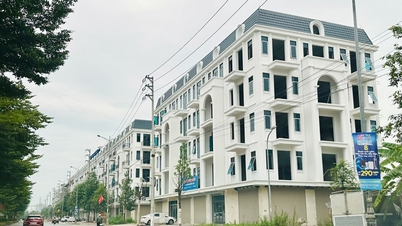



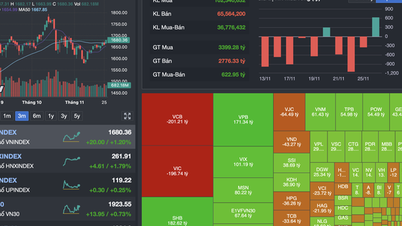






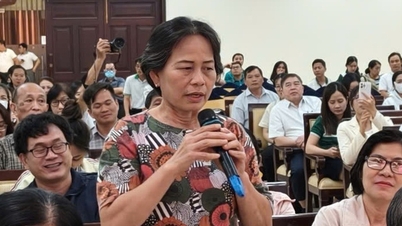





































































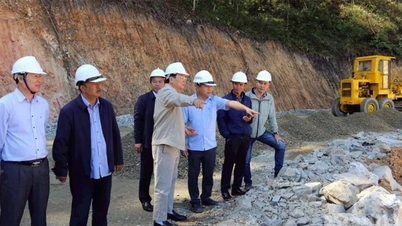





















Comment (0)